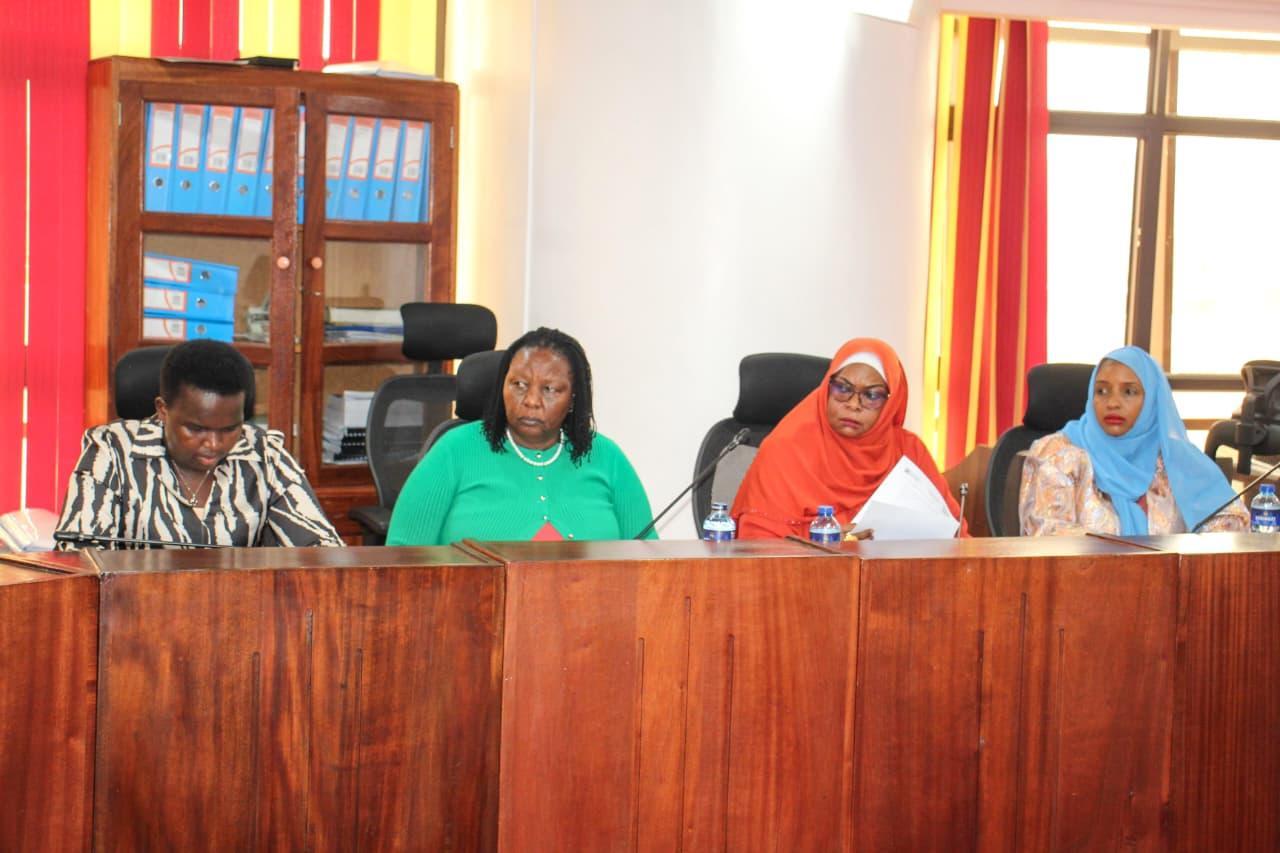Africa-Press – Kenya. The National Assembly Committee on Social Protection has raised sharp questions over a proposed policy on women’s empowerment, warning that it risks duplicating existing institutions and undermining the mandate of the 47 Women Representatives.
The Committee, chaired by Hon. Alice Ng’ang’a, met officials from the National Government Affirmative Action Fund (NGAAF) to hear submissions on the draft National Policy for Women’s Economic Empowerment.
The policy was developed by the State Department for Gender and Affirmative Action under the Ministry of Gender, Culture, The Arts and Heritage.
While legislators welcomed efforts to uplift women and vulnerable groups, they expressed serious reservations about the policy’s structure and intent.
National Assembly Committee on Social Protection chairperson Hon. Alice Ng’ang’a during the meeting on September 30, 2025./PARLIAMENTThey argued that its unclear implementation lines could weaken established systems that are already delivering results.“We support every effort that empowers women,” said Ng’ang’a. “But we cannot sit and watch a policy roll out that risks weakening institutions already delivering results. If something is working, don’t create a parallel system; reinforce it.”
NGAAF Chief Executive Officer Roy Sasaka Telewa told the Committee that clarity was critical if the policy was to succeed.
“The policy must expressly state who the implementing agency is,” he said.
“If it is NGAAF, then it must operate within existing frameworks so that efforts complement rather than duplicate.”
Lawmakers cautioned that without refinement, the policy could erode gains made through NGAAF and the offices of Women Representatives, which were created to support grassroots development.
Mombasa Woman Rep Zamzam Mohammed and her Tana River county counterpart Amina Abdullahi Dika/PARLIAMENTHon. Zamzam Mohammed of Mombasa questioned the rationale of extending implementation to counties without consultation. “Counties already have their own budgets. This appears to be coming through the back door. The Cabinet Secretary must clearly explain what the intent is,” she said.
Mohammed also pressed for reforms to youth and women credit policies, adding: “Let’s be realistic while creating policies. Where will young people get the logbooks and title deeds to access loans in this economy as required by the youth fund?”
Hon. Agnes Pareyio of Narok North described the proposal as “a scheme to edge out Women Representatives,” while Tarbaj MP Hon. Barre Hussein Abid warned that “NGAAF is being fought through policy language.”
NGAAF Chief Executive Officer Roy Sasaka Telewa speaks during the meeting on September 30, 2025./PARLIAMENTThe Committee stressed that its role was not to oppose Cabinet directives but to safeguard the effective use of public resources. Members emphasized the need to build on existing programs instead of creating overlapping structures.
“We are not against the Cabinet,” Ng’ang’a said. “However, as custodians of NGAAF and champions of women’s empowerment, we must ensure public resources are used prudently. It’s better to expand NGAAF’s mandate than create new bureaucracies.”
The legislators said the policy as drafted risked weakening accountability and confusing beneficiaries. They insisted that any new framework should strengthen, rather than compete with, the mandate of Women Representatives and NGAAF.
The Committee will summon the Cabinet Secretary for Gender in the coming weeks to explain the policy in detail and address the concerns raised by both MPs and NGAAF officials.
For More News And Analysis About Kenya Follow Africa-Press






